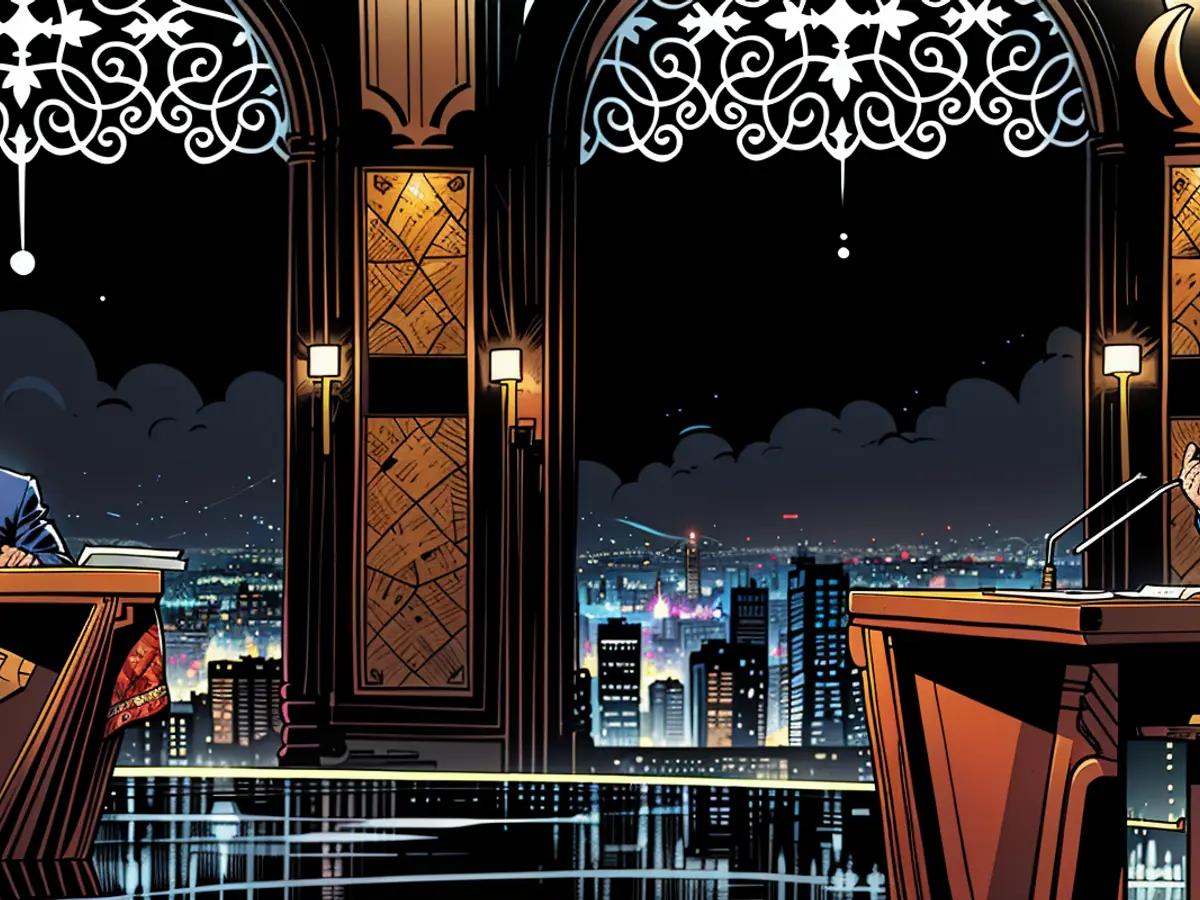Presidential election - Run-off election in Iran: reform candidate against hardliners
In Iran, on this Friday, the moderate presidential candidate Massud Peseschkian and the Hardliner Said Jalili will go into the runoff. Approximately 61 million people are called to elect a successor for the late Ebrahim Raisi, who died in a helicopter accident.
The polling stations are again open from 8:00 am to 6:00 pm local time (6:30 am to 4:30 pm CET) with the possibility of extension. Preliminary results are expected on Saturday.
From a total of 80 candidates, the so-called Guardian Council, a powerful Islamic oversight body, only allowed six to run. Two of them withdrew. Unlike in many other countries, the President in Iran is not the head of state. The real power is concentrated in the hands of the Religious Leader Ayatollah Ali Khamenei.
Reform candidate vs. Hardliner
The reformist candidate Peseschkian is 69 years old and comes from the northwest of Iran. In his campaign, the previously unremarkable politician called for renewed trust between the government and the people, who are disillusioned with politics due to failed reform attempts, political repression, and an economic crisis. Like many reformists, he also advocated for improving relations with the West.
During the campaign, Peseschkian criticized the internet censorship and the repressive approach of the Morality Police against women who violate the hijab law in public. At the same time, he declared his loyalty to Religious Leader Khamenei. In the TV debates, he described himself as a value-conservative politician who believes in necessary reforms. Critics accuse him of not being able to implement these reforms given the majority of hardliners in parliament.
Jalili, on the other hand, was part of the inner circle early on and worked in the office of the Religious Leader. Under the controversial former president Mahmud Ahmadinejad, Jalili served as his chief negotiator in the nuclear talks. The Hardliner enjoys broad support from radical and loyal system supporters. He is known as a staunch supporter of the ideology of the Islamic Revolution in Iran.
Little enthusiasm, much frustration
According to official data, the voter turnout in the first round a week ago reached a record low of around 40%. This reflects the great disillusionment, especially among the younger generation, who have lost faith in significant domestic political changes. The death of the young Kurdish woman Jina Masa Amini in the fall of 2022 sparked nationwide protests against the Islamic ruling system.
Peseschkian received around 10.4 million (around 42.5%) and Jalili around 9.4 million votes. For the conservative third-placed candidate, Parliament Speaker Mohammad Bagher Ghalibaf, approximately 3.4 million Iranians voted. He then endorsed Jalili. With this, the conservative camp goes into the runoff with a slight advantage. Reformist candidate Peseschkian needs to win over many non-voters to secure a victory.
Iran's political system combines republican and theocratic elements since the 1979 Revolution. Free elections do not exist: The oversight committee of the Guardian Council always checks the candidates' suitability. Fundamental criticism of the system is not tolerated, as the suppression of protests in recent years showed.
- Said Jalili, a hardliner and former chief negotiator under Mahmud Ahmadinejad, has the support of radical and loyal system supporters in Iran.
- During the election campaign, Ali Khamenei, the Religious Leader of Iran, encouraged the people to participate in the Presidential election, stressing its importance for the country's future.
- In the run-off election, the moderate candidate Massud Peseschkian and Said Jalili will compete for the presidency of Iran, with the winner assuming the role of President in a time of economic crisis and political disillusionment.
- In his campaign, Presidential candidate Raisi's successor, Massud Peseschkian, criticized the internet censorship and the repressive approach of the Morality Police against women who violate the hijab law in public while maintaining his loyalty to Ayatollah Ali Khamenei.
- The Iranian people, including those in Tehran, will soon choose their new President in a highly influential and powerful position, as the actual power lies in the hands of Ayatollah Ali Khamenei, the Religious Leader of Iran.








